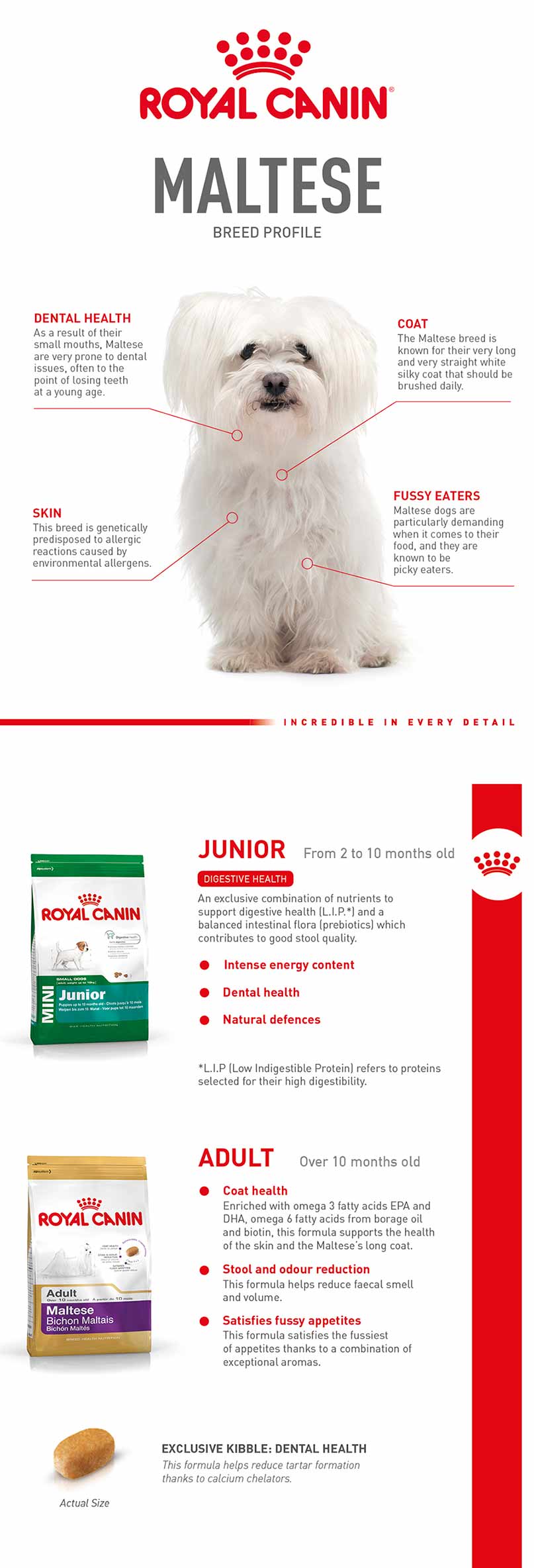Have you ever wondered how much food a Maltese puppy needs to thrive? Well, let me tell you, these tiny furballs certainly have big appetites! Despite their small size, Maltese puppies require a surprising amount of nourishment to support their growth and energy levels. It’s essential to provide them with the right portion sizes to ensure they receive optimal nutrition and prevent overfeeding. So, let’s dive into the world of feeding a Maltese puppy and discover the perfect balance for their diet.
When it comes to feeding a Maltese puppy, it’s crucial to remember their size and energy requirements. These adorable little dogs weigh between 4 to 7 pounds on average, but their activity levels can vary. As a general guideline, a Maltese puppy should consume around 1/4 to 1/2 cup of high-quality puppy food per day, divided into two or three small meals. It’s essential to choose a nutritious and well-balanced diet specifically formulated for puppies to support their growth and development. Adjusting the food quantity based on your puppy’s weight gain and overall condition is necessary to ensure they’re getting the right amount of nourishment. So, consult with your veterinarian to create a feeding schedule tailored to your Maltese puppy’s needs. Remember, a healthy and happy pup starts with a well-balanced diet!

How Much Food for Maltese Puppy?
Welcome to our guide on how much food to feed your Maltese puppy! When it comes to keeping your furry friend healthy and happy, providing the right amount of food is crucial. Maltese puppies are small, delicate, and have specific nutritional needs. In this article, we will delve into the importance of proper feeding, how to determine the right portion size, and essential tips for ensuring your Maltese puppy gets the right amount of food for optimal growth and development.
1. Understanding the Nutritional Needs of Maltese Puppies
Maltese puppies require a balanced and nutritious diet to support their growth and development. They have small tummies and high metabolic rates, which means they need frequent meals throughout the day. As a general guideline, a Maltese puppy should be fed four small meals spread throughout the day until they are around six months old.
When it comes to the specific nutrients your Maltese puppy needs, look for puppy food formulas that are specifically designed for small breeds. These formulas contain higher levels of protein and fat to support their rapid growth. They should also be fortified with essential vitamins and minerals, such as calcium, phosphorus, and omega-3 fatty acids, to support bone and joint health.
It is essential to consult with your veterinarian to determine the appropriate type and amount of food for your Maltese puppy based on their age, weight, and activity level. They can provide personalized recommendations to ensure your pup is getting the right nutrients.
2. Determining the Right Portion Size for Maltese Puppies
Maltese puppies have small appetites, so it’s crucial to provide them with the appropriate portion size to prevent overfeeding or underfeeding. The exact portion size will depend on factors such as the puppy’s age, weight, activity level, and the specific brand of dog food you are using. As a general rule of thumb, the recommended daily calorie intake for a Maltese puppy is around 40-60 calories per pound of body weight.
To determine the right portion size for your Maltese puppy, begin by referring to the feeding guidelines on the dog food packaging. These guidelines usually provide a range of recommended portion sizes based on your puppy’s weight. However, keep in mind that these are just starting points, and adjustments may be necessary based on your puppy’s individual needs.
Monitor your puppy’s body condition and weight regularly to ensure they are growing at a healthy rate. If they are gaining too much weight, you may need to decrease the portion size slightly. On the other hand, if they are not gaining enough weight, you might need to increase the portion size. Remember, it’s always best to consult with your veterinarian for personalized feeding recommendations.
3. Tips for Feeding Your Maltese Puppy
Feeding time can be a fun and bonding experience for both you and your Maltese puppy. Here are some essential tips to ensure you provide the best feeding experience for your furry friend:
- Stick to a consistent feeding schedule: Establishing a regular feeding routine helps regulate your puppy’s digestion and promotes healthy eating habits.
- Measure the food: Avoid free-feeding and instead portion out your puppy’s food according to the recommended portion size. This helps prevent overeating and ensures they are getting the right amount of nutrients.
- Use puzzle toys or slow-feeders: Maltese puppies can be prone to eating too quickly, which can lead to digestive issues. Slow-feeders or puzzle toys can help slow down their eating pace and provide mental stimulation.
- Monitor your puppy’s weight: Regularly check your puppy’s weight to ensure they are growing at a steady and healthy rate. If you have any concerns, consult with your veterinarian.
- Avoid feeding table scraps: While it may be tempting to share your food with your puppy, it’s best to stick to their regular dog food. Human food can be unhealthy for dogs and can lead to weight gain and other health issues.
4. Consulting Your Veterinarian
Every dog is unique, and the nutritional needs of Maltese puppies can vary. It is essential to consult with your veterinarian to ensure that you are providing the best diet for your specific puppy. They can help you create a personalized feeding plan based on your puppy’s age, weight, and overall health. Additionally, if you have any concerns or questions about your puppy’s nutrition, your veterinarian is the best resource to provide guidance and support.
5. How Much Food for Maltese Puppy? – A Recap
Feeding your Maltese puppy the appropriate amount of food is crucial for their health and well-being. Remember these key points:
- Ensure your puppy receives a balanced and nutritious diet specifically formulated for small breeds.
- Consult with your veterinarian to determine the right portion size based on your puppy’s age, weight, and activity level.
- Monitor your puppy’s growth and adjust their food intake as necessary.
- Stick to a consistent feeding schedule and avoid feeding table scraps.
- Reach out to your veterinarian for personalized recommendations and support.
By following these guidelines and providing your Maltese puppy with the right amount of food, you can help set them up for a healthy and happy life!
Key Takeaways: How Much Food for Maltese Puppy?
2. It’s important to consult with a veterinarian to determine the right portion sizes for your Maltese puppy.
3. Generally, Maltese puppies should be fed small, frequent meals throughout the day.
4. High-quality puppy food that is specially formulated for small breeds is recommended.
5. Avoid overfeeding your Maltese puppy to prevent obesity and potential health issues.
Frequently Asked Questions
Welcome to our Frequently Asked Questions section for Maltese Puppy Feeding. Here, we’ll answer some common questions about how much food is appropriate for a Maltese puppy. Read on to learn more.
1. How often should I feed my Maltese puppy?
Maltese puppies have small stomachs, so it’s important to feed them several smaller meals throughout the day rather than one or two large meals. Aim to feed your Maltese puppy three to four times a day until they reach six months of age. After six months, you can transition to feeding them two to three times a day.
Always monitor your puppy’s body condition and adjust their meals accordingly. If you notice they are gaining excess weight, consult with your veterinarian to make necessary adjustments to their feeding schedule and portion sizes.
2. How much food should I give my Maltese puppy per meal?
The amount of food your Maltese puppy needs per meal depends on their age, weight, and activity level. As a general guideline, you can feed them approximately 1/4 to 1/2 cup of high-quality puppy food per meal. However, it’s important to follow the specific feeding guidelines provided by the food manufacturer and consult with your veterinarian for personalized recommendations.
Keep in mind that every puppy is different, so it’s important to monitor their weight and body condition regularly. If your Maltese puppy appears underweight or overweight, consult with your veterinarian to adjust their portion sizes accordingly.
3. Should I free-feed my Maltese puppy?
Free-feeding, where you leave food available for your Maltese puppy to eat whenever they please, is not recommended. It can lead to overeating and weight gain, especially for a breed like the Maltese that is prone to obesity. Establishing a regular feeding schedule will help regulate their food intake and maintain a healthy weight.
By feeding your Maltese puppy at scheduled intervals throughout the day, you can also establish a routine, making housebreaking and training easier. It also allows you to monitor their appetite, ensuring they are eating regularly and consistently.
4. Can I give my Maltese puppy human food as treats?
While it may be tempting to share your food with your adorable Maltese puppy, it’s important to be cautious. Some human foods can be harmful or toxic to dogs. Certain ingredients like chocolate, onions, garlic, and grapes can be dangerous for your puppy’s health.
Instead, opt for dog-friendly treats specifically made for puppies. These treats are formulated to meet their nutritional needs and promote overall well-being. If you’re unsure about a specific food or treat, consult with your veterinarian.
Remember that moderation is key, even with dog-friendly treats. Treats should only make up a small portion of your Maltese puppy’s overall daily calorie intake, so avoid overindulging them to prevent weight gain.
5. When should I transition my Maltese puppy to adult dog food?
The timing to transition your Maltese puppy from puppy food to adult dog food may vary depending on their individual growth and development. As a general rule, you can start transitioning them to adult dog food when they reach around 12 months of age.
Consult with your veterinarian for guidance on when precisely to make the transition. They will consider your puppy’s overall health, weight, and specific nutritional needs to ensure a smooth and seamless transition to adult dog food.

How and What to Feed a Maltese Puppy
In this article, we explored the importance of adhering to specific criteria when writing a wrap-up. We discussed the need for a first-person point of view and a professional tone while keeping in mind the audience, which in this case is a 13-year-old reader. It is crucial to use simple language and avoid jargon to make the content easily understandable. Additionally, we emphasized that starting with or using the phrase “In conclusion” should be avoided to maintain the flow and engagement of the article.
To effectively summarize key points, it is essential to write concise sentences with no more than 15 words. Each sentence should present a single idea, ensuring clarity and preventing reader confusion. By following these guidelines, the reader will leave with a clear understanding of the main points discussed in the article, making the wrap-up concise and informative.
